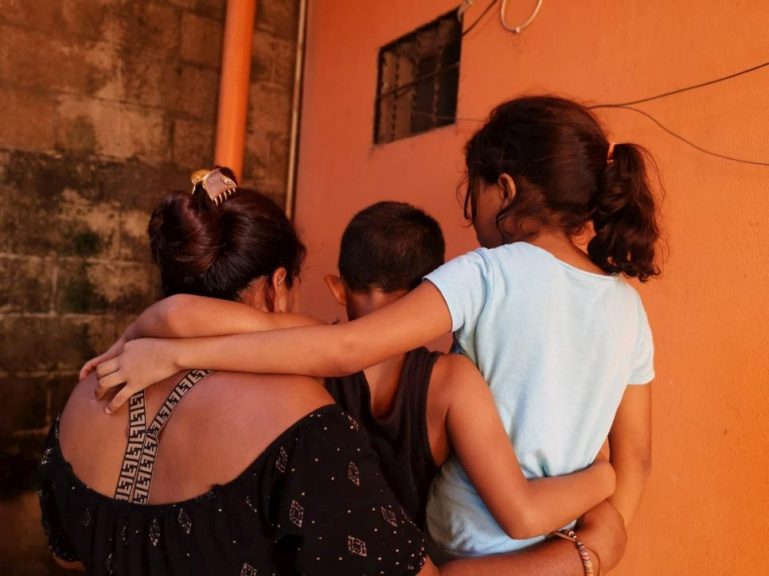
A Honduran family who fled gang threats in the middle of the COVID-19 pandemic are pictured at a shelter in Guatemala. © UNHCR/Luis Sanchez Valverth
“This is a crucial step in the right direction, that will better protect refugees and ensure a safer, humane and more efficient path to safety,” said Jose Samaniego, UNHCR Regional Director for the Americas.
“We are committed to strengthening the asylum system in our country; it is a challenge that we know will require a lot of effort, time, financial resources and shared responsibilities,” said Guatemalan President Alejandro Giammattei.
Guatemala, one of the three countries of the North of Central America, is a country of origin, transit and asylum for people forced to flee their homes. In 2020, a total of 487 people applied for refugee status in the country, an 85 percent increase from 2018.
Most asylum seekers are from Honduras, El Salvador and Nicaragua. This is a trend expected to continue in the coming years, as people in Central America continue to be forcibly displaced by violence and persecution.
UNHCR welcomed, this week, the recently announced termination of the bilateral accords between the governments of the United States and Guatemala, Honduras and El Salvador known as Asylum Cooperation Agreements (ACA). While UNHCR was never a party to those agreements or was involved in their implementation, it expressed to respective governments the protection risks they posed as well as the possibility of chain refoulement.
Guatemala is making significant effort to welcome those who need international protection by boosting its capacity to process asylum claims despite the challenges it faces, including those related to the impact of recent devastating storms and COVID-19.
The new Refugee Status Recognition Department of Guatemala’s Migration Institute (IGM), will be staffed with psychologists, social workers and lawyers, attending to the needs of asylum seekers and will process their claims.
UNHCR contributed to the establishment of this facility, providing technology and equipment, supported through financial contributions from the government of the United States.
The initiative is part of Guatemala’s commitments as part of the Comprehensive Regional Framework for Protection and Solutions (MIRPS), after several years of joint work in the creation protection spaces for refugees who arrive in the country.
